As you reach your 40s, it is crucial to maintain an active lifestyle for your overall health and well-being. Regular exercise is key to staying fit, improving flexibility, boosting mood, and reducing the risk of chronic diseases. While your workout routine may require adjustments compared to your younger years, there are specific exercises tailored for individuals in their 40s to enhance strength, flexibility, and cardiovascular health.
By incorporating these five recommended workouts into your fitness regimen, you can ensure that you remain healthy, active, and vibrant well into your 40s and beyond. It is important to listen to your body, start at a manageable pace, and progressively increase the intensity and difficulty of your workouts as you advance. Read on to discover how to effectively perform these top-recommended exercises for individuals in their 40s.
Workout #1: Strength Training for Bone Density and Muscle Mass
With age, the importance of strength training magnifies to maintain bone density and muscle mass. Including compound exercises that work multiple muscle groups simultaneously is particularly advantageous in your 40s.
1. Squats
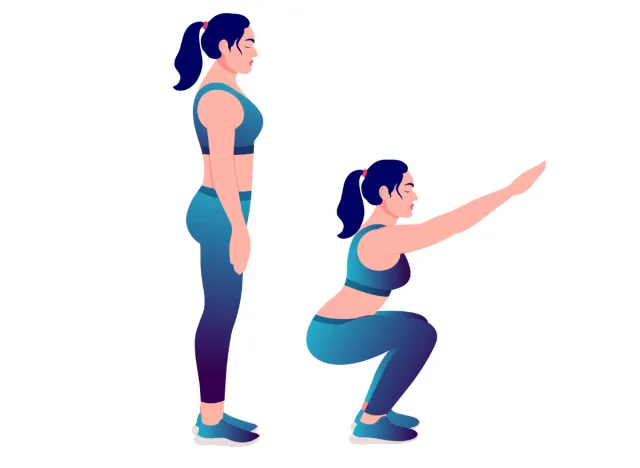
Stand with your feet shoulder-width apart, toes slightly turned out, and a barbell resting on your upper back. Bend your knees and hips, lowering your body until your thighs are parallel to the ground. Push through your heels to return to the starting position. Do three sets of 10 to 12 reps.
See also The #1 Best Bench Press Workout To Increase Strength & Muscle
2. Deadlifts
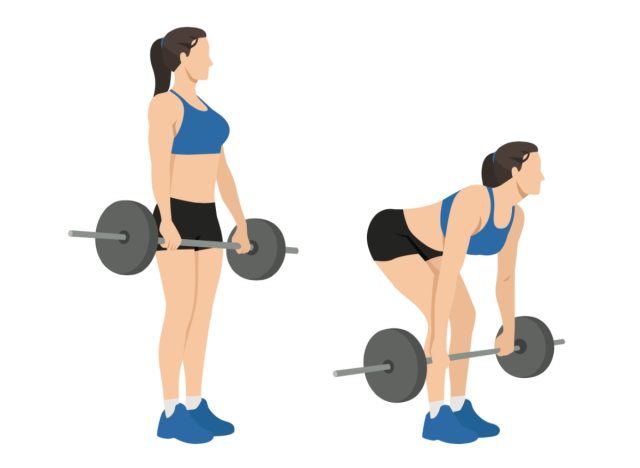
Stand with your feet hip-width apart and a barbell positioned in front of you on the ground. Keeping your back straight and chest up, bend at your hips and knees to grip the barbell. Lift the barbell by extending your hips and knees until you’re standing upright. Lower it back down with control. Aim for three sets of eight to 10 reps.
3. Pushups
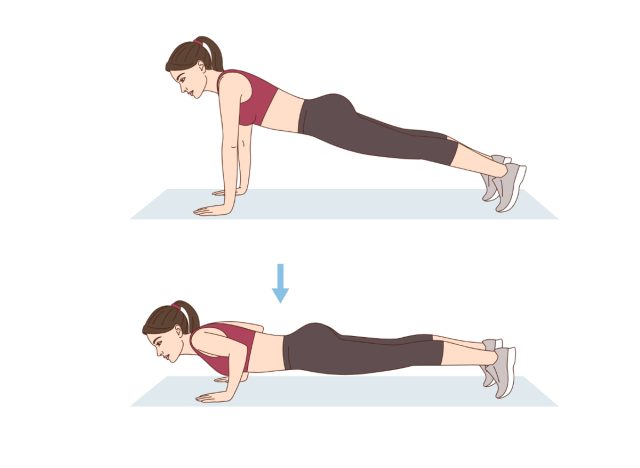
Begin in a plank position with your hands slightly wider than shoulder-width apart and your body forming a straight line from your head to your heels. Lower your body by bending your elbows until your chest nearly touches the ground. Push back up to the starting position. Perform three sets of eight to 12 reps.
Workout #2: Yoga for Flexibility and Stress Relief
Yoga offers a perfect blend of physical exercise and mental relaxation, making it an ideal workout for those in their 40s seeking flexibility and stress relief.
1. Downward-facing Dog
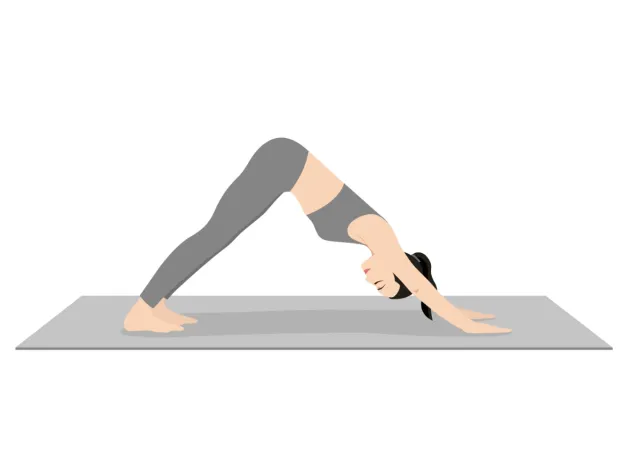
Start on your hands and knees with your wrists under your shoulders and knees under your hips. Lift your hips up and back, straightening your arms and legs to form an inverted V shape. Hold for 30 seconds to one minute, breathing deeply.
2. Warrior II Pose
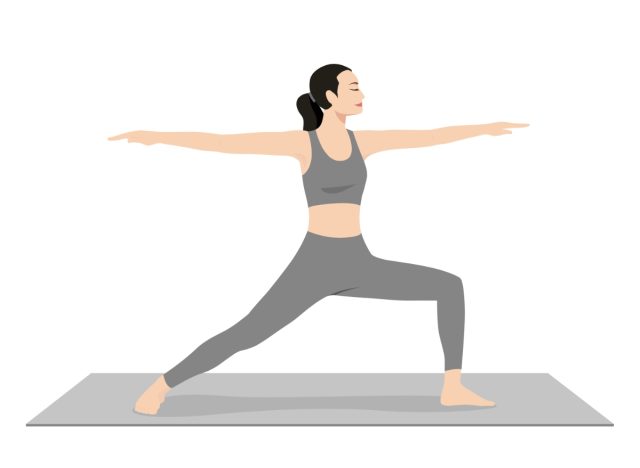
Begin standing with your feet wide apart, then turn your right foot out 90 degrees and your left foot slightly inward. Bend your right knee, keeping it aligned with your ankle, and extend your arms out to the sides parallel to the floor. Hold for 30 seconds to one minute, then switch sides and repeat.
3. Seated Forward Bend
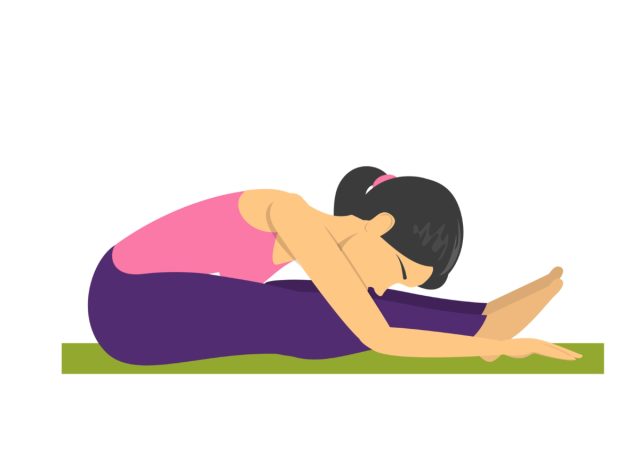
Sit on the floor with your legs extended in front of you and your feet flexed. Inhale to lengthen your spine, then exhale to hinge forward from your hips, reaching for your feet or shins. Hold the stretch for 30 seconds to one minute, focusing on deep breathing and relaxing into the pose.
See also How to Get Six-Pack Abs After 50
Workout #3: Cardiovascular Exercise for Heart Health
Cardiovascular exercise is vital for maintaining heart health and reducing the risk of cardiovascular diseases, which become more prevalent as we age.
1. Brisk Walking
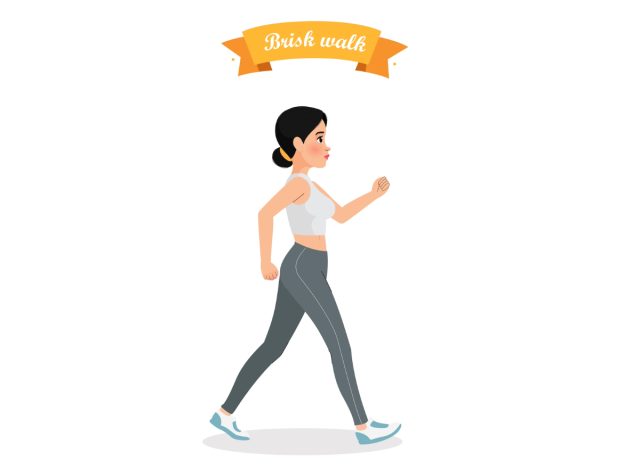
Start with a five-minute warm-up at a moderate pace. Increase your speed to a brisk walk, maintaining a pace where you can talk but not sing comfortably. Aim for at least 30 minutes of brisk walking, gradually increasing duration and intensity over time.
2. Cycling
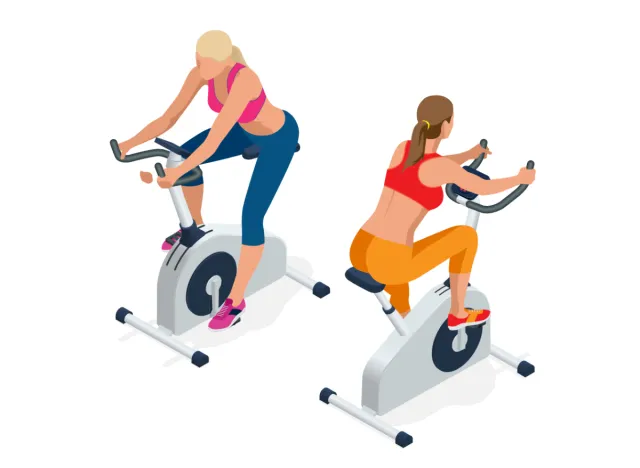
Choose a stationary bike or ride outdoors on a flat, safe route. Start pedaling at a comfortable pace for five minutes to warm up. Increase your intensity by adjusting resistance or speed for 20 to 30 minutes, then cool down with five minutes of easy pedaling.
3. Swimming
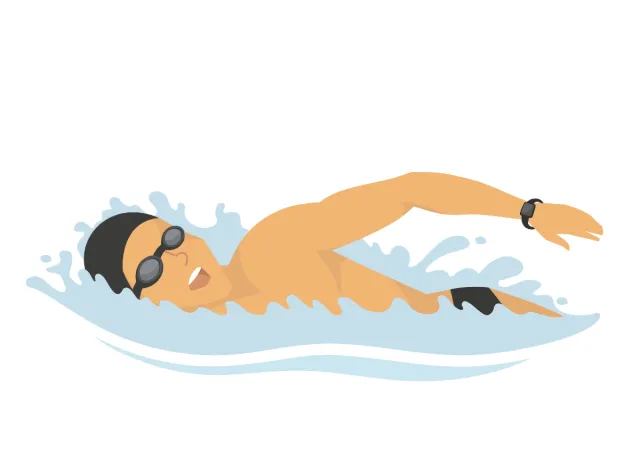
Head to your local pool and start with a few laps of freestyle or your preferred stroke to warm up. Once warmed up, alternate between different strokes, such as breaststroke, backstroke, and butterfly, aiming for 20 to 30 minutes of continuous swimming. Cool down with several minutes of easy swimming or treading water.
Workout #4: Core Strengthening for Stability and Posture
Core strength is essential for stability, balance, and maintaining good posture, which becomes increasingly important as we age.
1. Planks

Begin in a forearm plank position with your elbows under your shoulders and your body forming a straight line from your head to your heels. Hold the position for 30 to 60 seconds, engaging your core and avoiding sagging or arching. Repeat for three sets, gradually increasing the duration as you get stronger.
2. Russian Twists
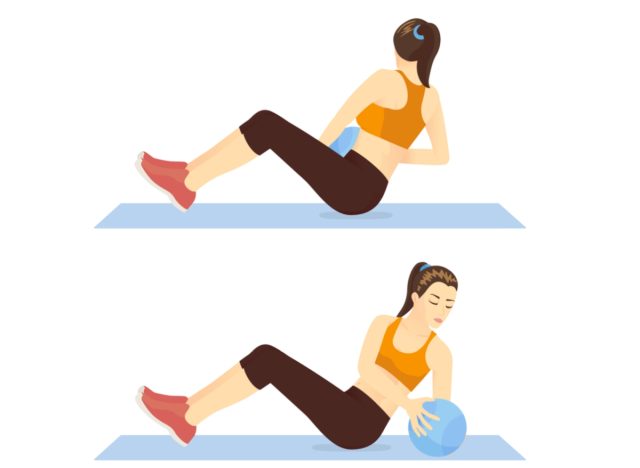
Sit on the floor with your knees bent and feet lifted, leaning back slightly to engage your core. Hold a weight or medicine ball with both hands and twist your torso to the right, tapping the weight on the floor beside you. Return to the center and repeat on the left side. Aim for three sets of 10 to 15 twists on each side.
See also 10 Best Bodyweight Exercises for Men To Get Bigger Arms
3. Bird Dog
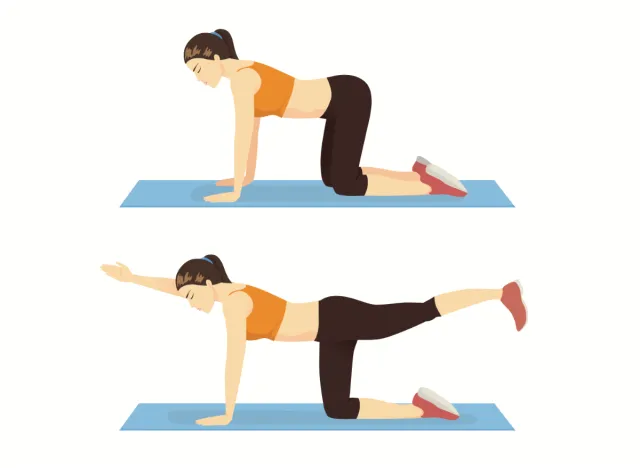
Start on your hands and knees in a tabletop position, with your wrists under your shoulders and knees under your hips. Extend your right arm forward and left leg back, keeping your hips and shoulders square to the ground. Hold for a few seconds, then return to the starting position and switch sides. Perform three sets of eight to 12 repetitions on each side.
Workout #5: Balance and Coordination Exercises for Injury Prevention
Maintaining good balance and coordination becomes crucial for preventing falls and injuries as you age, which can have serious consequences.
1. Single-leg Stance
Stand tall on one leg, with the other foot lifted slightly off the ground. Hold the position for 30 seconds to one minute, maintaining your balance and stability. Switch legs and repeat, aiming for three sets on each leg.
2. Heel-to-Toe Walk
Position your right foot in front of your left foot so that the heel of your right foot touches the toes of your left foot. Walk in a straight line, placing the heel of your left foot in front of the toes of your right foot with each step. Continue for 10 to 20 steps, then reverse direction and repeat. Aim for three sets.
3. Balance Board Exercises
Stand on a balance board with feet hip-width apart, engaging your core to maintain stability. Practice shifting your weight from side to side and front to back, gradually increasing the difficulty by closing your eyes or performing exercises while balancing. Aim for five to 10 minutes of balance board exercises as part of your routine.
Frequently Asked Questions (FAQs)
Why is it important to workout in your 40s?
Working out in your 40s is essential for maintaining muscle mass, bone density, and overall health. Physical activity can help prevent age-related diseases, improve flexibility and strength, and boost mood and energy levels.
What are some recommended workouts for people in their 40s?
1. Cardiovascular Exercises
Cardio workouts like running, swimming, biking, and aerobics are great for improving heart health, burning calories, and boosting stamina.
2. Strength Training
Incorporating strength training into your routine can help preserve muscle mass, increase metabolism, and support bone health. Focus on exercises that target major muscle groups, such as squats, lunges, and push-ups.
3. Flexibility and Stretching
Stretching exercises like yoga or Pilates can enhance flexibility, improve posture, and reduce the risk of injuries. Make sure to include stretches for all major muscle groups in your workouts.
4. Core Workouts
Building a strong core through exercises like planks, Russian twists, and leg raises can help improve balance, stability, and posture. A strong core is also essential for preventing back pain.
5. Low-Impact Exercises
Low-impact activities like walking, cycling, or swimming are gentle on the joints while still providing cardiovascular benefits. These workouts can help reduce the risk of injury and are ideal for individuals with joint issues.
How often should I exercise in my 40s?
It is recommended to aim for at least 150 minutes of moderate-intensity or 75 minutes of vigorous-intensity aerobic activity each week, along with strength training exercises twice a week. However, the key is to find a balance that works for your schedule and fitness level.
Are there any workouts I should avoid in my 40s?
Avoid high-impact activities that put excessive strain on the joints, especially if you have existing joint issues. Additionally, it’s important to listen to your body and avoid overtraining to prevent injuries.






